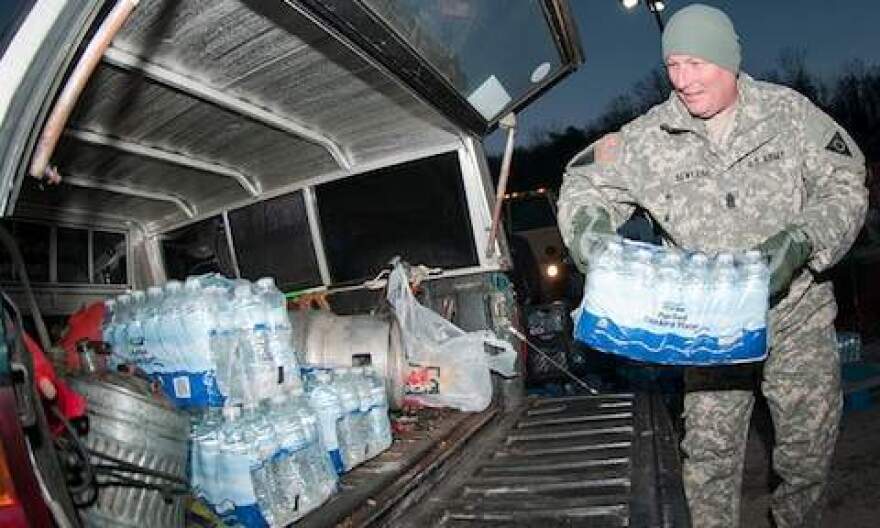It was some ten days before all of the families affected by the tap water ban following Charleston’s chemical spill were able to return to life as usual within their homes. And many did just that, once again drinking, cooking and bathing with water straight from the tap. The same, however, can’t be said for every family in the valley including Lida Shepherd, who says she still won’t drink the water.
Lida Shepherd and her two-year-old daughter, Lucia live in a small apartment on the East End of Charleston. Lucia loves tea.
This time last year, tea wasn’t so easy to make. Lida and her daughter were one of many families directly affected by the January 9th chemical leak.
“When I first got the word of the chemical leak, and the chemical spill, it was very frightening,” Lida remembered, “It was very frightening to turn on the water, and that smell was, I mean it gave me headaches, I mean I had a, definitely like a physical reaction to it.”
Her reaction was similar to hundreds of Kanawha Valley residents’ reports to their doctors.
Lida and her daughter now use city water to bathe and wash dishes and laundry in, but they still refuse to drink from the tap. Instead, Lida drives 20 miles to her parent’s farm in Sissonville to collect 4 to 6 gallons of water each week from their well. It’s a practice she began a year ago when the water use ban was still in place.
“It certainly has had lasting effects on me,” she said, “It’s now, even when I travel anywhere, whereas before I absolutely, I would just drink water from tap where I go, that’s not the case anymore. I always just sort of think about where I am, and like what’s going on with the water here? There’s definitely some sort of lasting fears, and like I said, I still don’t drink the water.”
Lida is an advocate for West Virginia Free, an organization that focuses on rights for women, and she also works with the American Friends Service Committee where she directs a youth leadership program in Boone County, an area also affected by the spill.
“They grew up in communities where not being able to drink the water comes up a lot,” Lida noted, “This was not a new experience for them to get word that the water wasn’t safe. And so when the chemical spill happened, some of them very much reacted just like, I’m not dead yet, literally that’s one of the girls said, she’s like, oh I’m showering in it.”
Lida says some of her students, however, felt angry at their lawmakers, blaming them for letting this happen or in some cases continue to happen.
After the spill and hearing from her students, Lida says it empowered her to want to make a difference in her state. She’s often advocated for stricter regulations and held a fundraiser at the time to provide bottled water to those who needed it.
“Reflecting on the year after the chemical spill, what we’ve been able to achieve and organize around, I’m pretty impressed by. I think because Charleston, you know, sort of a population center was largely impacted; it shed light on an issue that was an issue before this chemical spill,” she said.
As for Lucia, Lida says her daughter will continue to have tea parties with drinks made from her parents’ well water. At least, for now.






















